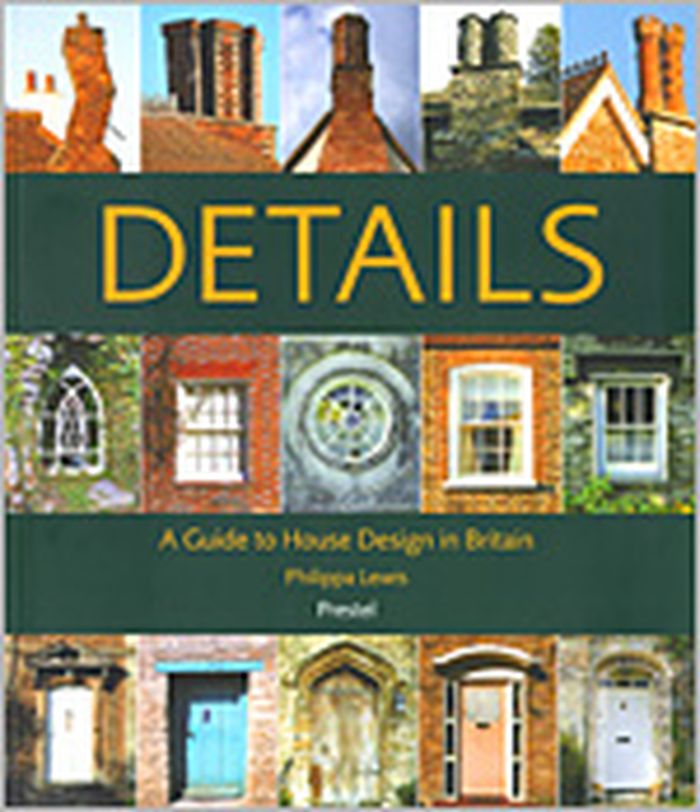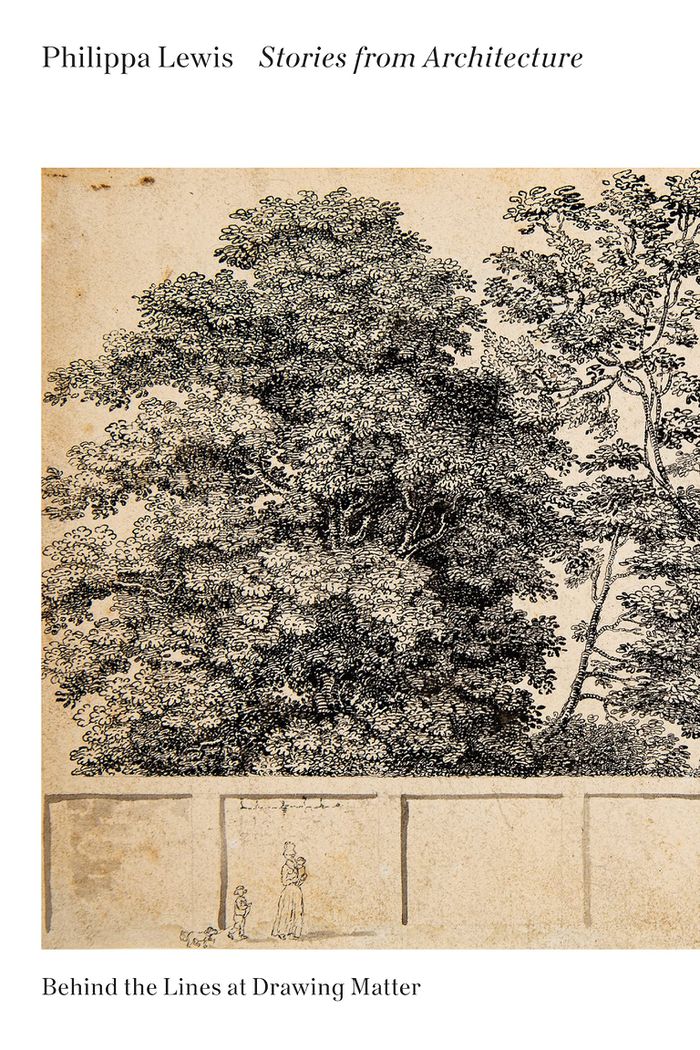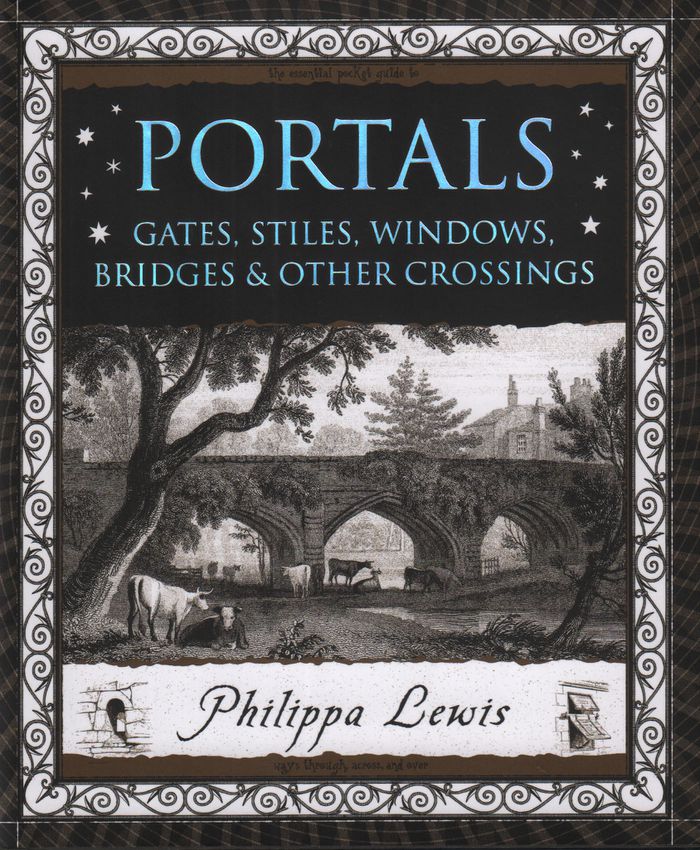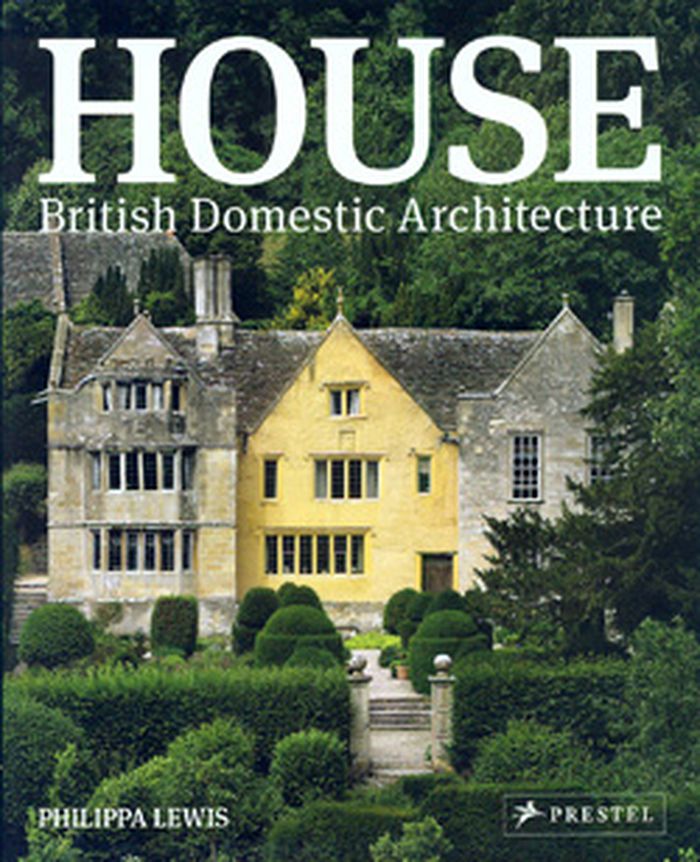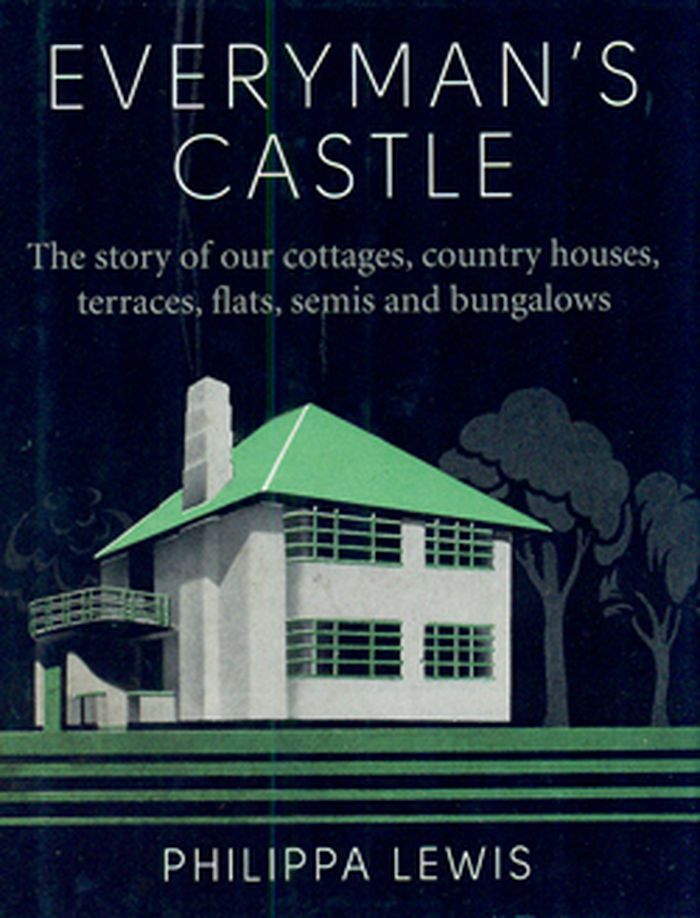$70.00
(disponible sur commande)
Résumé:
From chimneys to gates, medieval cottages to Georgian crescents, this photographic introduction to five hundred years of British domestic architecture presents an evolution of house design.
Details : a guide to house design in Britain
Actions:
Prix:
$70.00
(disponible sur commande)
Résumé:
From chimneys to gates, medieval cottages to Georgian crescents, this photographic introduction to five hundred years of British domestic architecture presents an evolution of house design.
Histoire jusqu’à 1900
$45.95
(disponible sur commande)
Résumé:
Even when an architectural drawing does not show any human figures, we can imagine many different characters just off the page: architects, artists, onlookers, clients, builders, developers, philanthropists—working, observing, admiring, arguing. In ''Stories from architecture,'' Philippa Lewis captures some of these personalities through reminiscences, anecdotes,(...)
Stories from architecture: Behind the lines at Drawing Matter
Actions:
Prix:
$45.95
(disponible sur commande)
Résumé:
Even when an architectural drawing does not show any human figures, we can imagine many different characters just off the page: architects, artists, onlookers, clients, builders, developers, philanthropists—working, observing, admiring, arguing. In ''Stories from architecture,'' Philippa Lewis captures some of these personalities through reminiscences, anecdotes, conversations, letters, and monologues that collectively offer the imagined histories of twenty-five architectural drawings. Some of these untold stories are factual, like Frank Lloyd Wright’s correspondence with a Wisconsin librarian regarding her $5,000 dream home, or letters written by the English architect John Nash to his irascible aristocratic client. Others recount a fictional, if credible, scenario by placing these drawings—and with them their characters—into their immediate social context. For instance, the dilemmas facing a Regency couple who are considering a move to a suburban villa; a request from the office of Richard Neutra for an assistant to measure Josef von Sternberg’s Rolls-Royce so that the director’s beloved vehicle might fit into the garage being designed by his architect; a teenager dreaming of a life away from parental supervision by gazing at a gadget-filled bachelor pad in Playboy magazine; even a policeman recording the ground plans of the house of a murder scene. The drawings, reproduced in color, are all sourced from the Drawing Matter collection in Somerset, UK, and are fascinating objects in themselves; but Lewis shifts our attention beyond the image to other possible histories that linger, invisible, beyond the page, and in the process animates not just a series of archival documents but the writing of architectural history.
Théorie de l’architecture
$19.00
(disponible sur commande)
Résumé:
An illustrated exploration of our limitless fascination with doors, gates, and bridges. The word 'portal' comes from the Latin for 'gate', but it refers to any place of ingress and egress. According to architectural historian Philippa Lewis, a portal 'is generally an optimistic thing, both literally and metaphorically... The word encapsulates the idea of passing through,(...)
février 2018
Portals: gates, stiles, windows, bridges and other crossings
Actions:
Prix:
$19.00
(disponible sur commande)
Résumé:
An illustrated exploration of our limitless fascination with doors, gates, and bridges. The word 'portal' comes from the Latin for 'gate', but it refers to any place of ingress and egress. According to architectural historian Philippa Lewis, a portal 'is generally an optimistic thing, both literally and metaphorically... The word encapsulates the idea of passing through, to a new opportunity, to making progress or moving forward, to entering fresh new worlds.'
$43.95
(disponible sur commande)
Résumé:
This illustrated publication reaches back five centuries to document the evolution and ingenuity of house design in the British Isles. The architecture of Britain’s houses displays a dizzying variety of styles and details. Brimming with 600 full-color photographs, this book annotates hundreds of examples from every conceivable angle : from gables and pediments to(...)
House : British domestic architecture
Actions:
Prix:
$43.95
(disponible sur commande)
Résumé:
This illustrated publication reaches back five centuries to document the evolution and ingenuity of house design in the British Isles. The architecture of Britain’s houses displays a dizzying variety of styles and details. Brimming with 600 full-color photographs, this book annotates hundreds of examples from every conceivable angle : from gables and pediments to chimneys and roofs; from bow windows and casements to fanlights and door furniture. Armed with a career’s worth of experience and research, Philippa Lewis takes readers up and down the country to feature examples of typically British building, including cottages, manor houses, castles, bungalows, and flats. She also looks at houses built from a wide variety of materials, including stone, glass, wood, brick, and even corrugated iron, in different settings such as rural, suburban, seaside, and urban. Lively texts help identify specific details and place them in their historical context, as well as offering compelling examples of how innovative conversions of structures such as watermills, gatehouses, and churches reflect and sustain their environment.
Everyman's castle: the story of our cottages, country houses, terraces, flats, semis and bungalows
$29.99
(disponible sur commande)
Résumé:
Everyman's Castle restores people to the panorama of domestic architecture. Philippa Lewis turns an affectionate eye to the characteristics of British types of houses - cottages, farmhouses, semi-detached, suburban, flats, terraces, bungalows, country houses - and charts their rise and fall. How were they perceived when they were built, and what happened to them(...)
Everyman's castle: the story of our cottages, country houses, terraces, flats, semis and bungalows
Actions:
Prix:
$29.99
(disponible sur commande)
Résumé:
Everyman's Castle restores people to the panorama of domestic architecture. Philippa Lewis turns an affectionate eye to the characteristics of British types of houses - cottages, farmhouses, semi-detached, suburban, flats, terraces, bungalows, country houses - and charts their rise and fall. How were they perceived when they were built, and what happened to them subsequently? How were the interior spaces used and altered over time? This books provides insight to all these questions, even what sort of message the design of a house sends about the inhabitants, from stairs up to the front door (implying servants living below) in a Victorian terrace to bay windows (implying private ownership) in the twentieth century.
Architecture résidentielle
